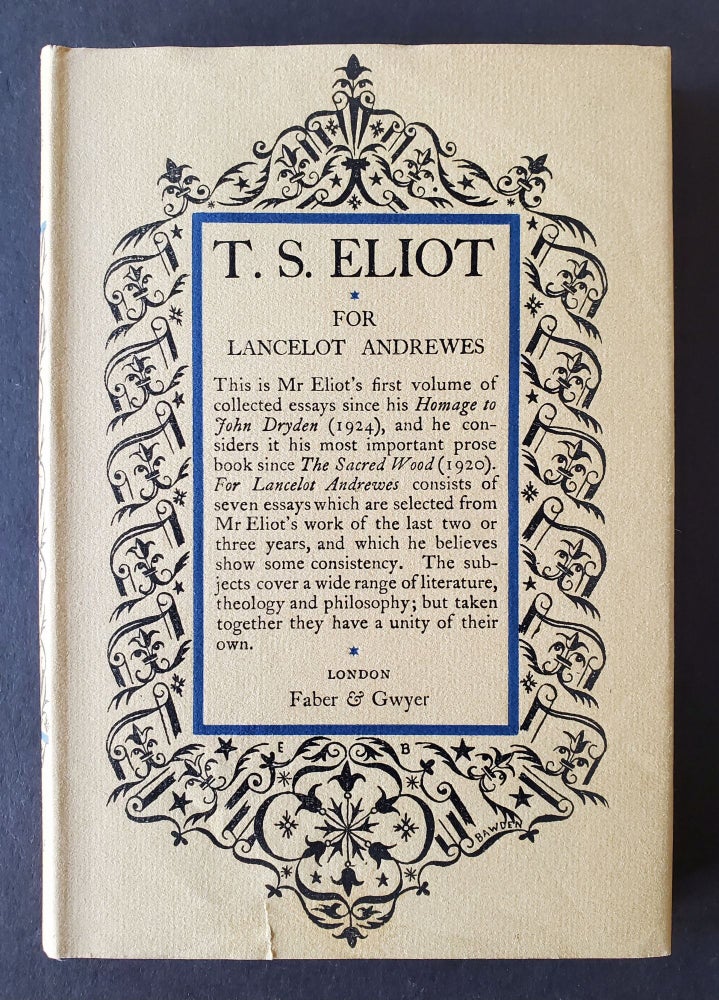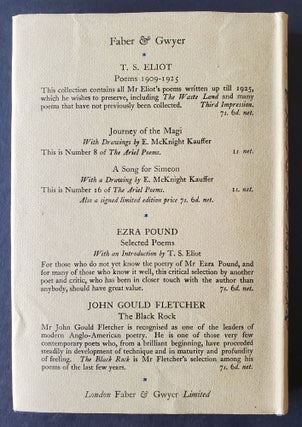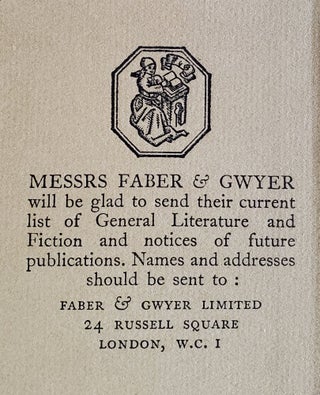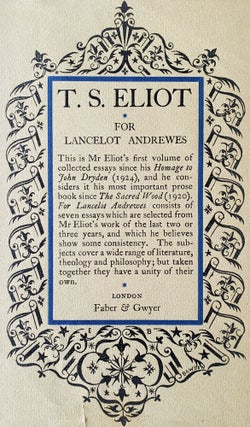For Lancelot Andrewes; Essays on Style and Order
London: Faber & Gwyer, 1928. First edition. Original blue cloth (7 5/8 inches tall), printed paper spine label, uncut, original dust jacket. Final leaf unopened, mild offsetting to two blank flyleaves, short closed tear to front panel of price-clipped dust jacket. A nearly-fine copy. Item #1311
"CLASSICIST IN LITERATURE, ROYALIST IN POLITICS, AND ANGLO-CATHOLIC IN RELIGION"
First edition of T.S. Eliot's "occasional" essays—in an excellent example of the original dust jacket by Bawden. One of only 1500 copies published in November 1928.
In June 1927, Eliot became both a naturalized British subject and an Anglican. "From this time onwards Eliot consciously anglicized himself, attempting a complete metamorphosis from American anglophile to English gentleman. Thus his becoming an Anglican was a necessary part of his becoming an Englishman, part of the psychology of an outsider trying a little too hard to become an insider" (Joseph Pearce). Published shortly after his entrance into the Church of England, For Lancelot Andrewes is noted for Eliot's announcement in the brief Preface: "the general point of view may be described as classicist in literature, royalist in politics, and anglo-catholic in religion." Consisting of eight essays: I. Lancelot Andrewes, II. John Bramhall, III. Niccolo Machiavelli, IV. Francis Herbert Bradley, V. Baudelaire in Our Time, VI. Thomas Middleton, VII. A Note on Richard Crashaw, VIII. The Humanism of Irving Babbitt. The mix of ecclesiastical, literary and philosophical figures was reflective of Eliot's personal journey from the Unitarianism of his American youth to the Anglo-Catholic wing of the Church of England. Eliot's brief preface also seemed intent on distancing himself from The Sacred Wood (1920), an early book of essays which had "established Eliot's reputation as a literary critic" (Pearce). "I wished to indicate certain lines of development, and to disassociate myself from certain conclusions which have been drawn from my volume of essays, The Sacred Wood." Gallup. T.S. Eliot: A Bibliography, A12, Pearce. Literary Converts: Spiritual Inspiration in an Age of Unbelief.
Price: $500.00




